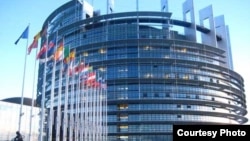WASHINGTON DC —
British think tank, Chatham House, has released a report urging the West to re-engage Zimbabwe and not to wait for a change in the country’s leadership, in particular President Robert Mugabe’s successor.
The titled, ‘Zimbabwe’s international re-engagement: The long haul to recovery’, says Zimbabwe is facing a daunting but not insurmountable economic challenges that have to be addressed by the government in corporation with other local and foreign stakeholders.
The report calls for an end to all sanctions and so-called targeted measures, as well as a pragmatic dialogue that recognizes mutual interest and responsibility.
It further urges Harare to seek re-engagement in international diplomatic business forums and seek to rejoin the commonwealth.
Chatham house says for the nation to avoid an economic collapse, Zimbabwe should adopt policies to build international business confidence, improve its human rights record and reform electoral laws that have been a source of friction between Zanu-PF and opposition parties.
The 28-nation EU, which imposed sanctions on Zimbabwe in 2002 in protest at human rights abuses and violations of democracy under Mr. Mugabe, has gradually eased the measures over the last few years to encourage political reform.
The US government also imposed sanctions on President Mugabe and his inner circle in 2003. Harare maintains that the West is punishing it for its agrarian reforms that started in 2000.
Political analyst and director of the Media Centre, Earnest Mudzengi, said Zanu-PF has no option but to re-engage.
The titled, ‘Zimbabwe’s international re-engagement: The long haul to recovery’, says Zimbabwe is facing a daunting but not insurmountable economic challenges that have to be addressed by the government in corporation with other local and foreign stakeholders.
The report calls for an end to all sanctions and so-called targeted measures, as well as a pragmatic dialogue that recognizes mutual interest and responsibility.
It further urges Harare to seek re-engagement in international diplomatic business forums and seek to rejoin the commonwealth.
Chatham house says for the nation to avoid an economic collapse, Zimbabwe should adopt policies to build international business confidence, improve its human rights record and reform electoral laws that have been a source of friction between Zanu-PF and opposition parties.
The 28-nation EU, which imposed sanctions on Zimbabwe in 2002 in protest at human rights abuses and violations of democracy under Mr. Mugabe, has gradually eased the measures over the last few years to encourage political reform.
The US government also imposed sanctions on President Mugabe and his inner circle in 2003. Harare maintains that the West is punishing it for its agrarian reforms that started in 2000.
Political analyst and director of the Media Centre, Earnest Mudzengi, said Zanu-PF has no option but to re-engage.




